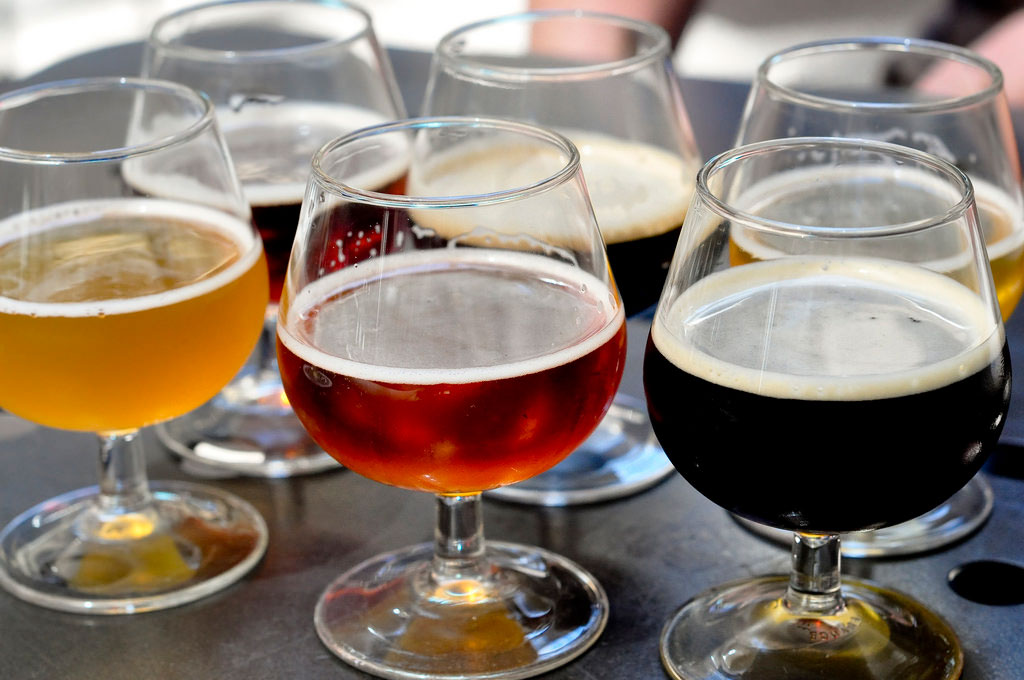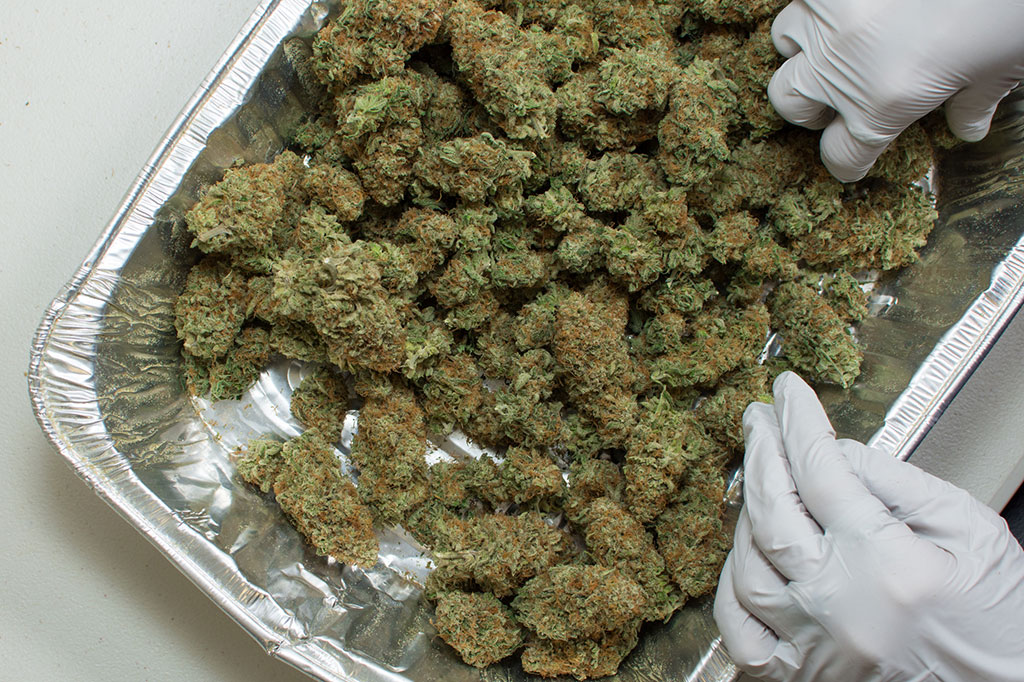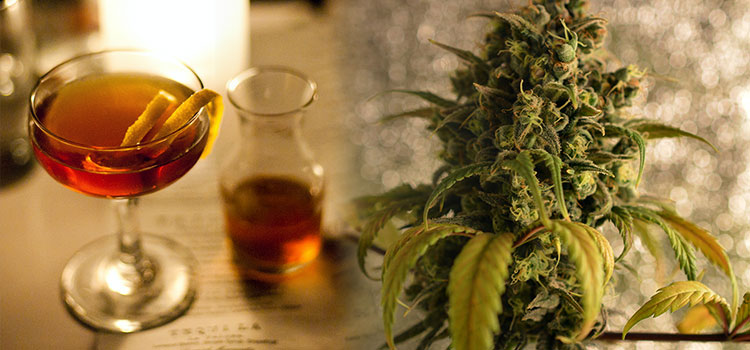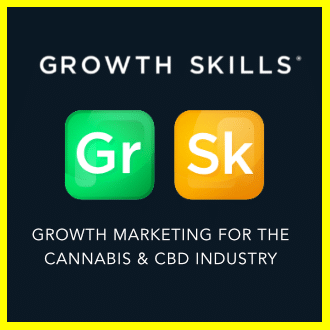The business relationship between the cannabis and alcohol industries remains strained and detached. In states permitting adult use, the sectors’ overlap is only provided by the state boards that regulate both; however, nowhere are the two legally bought, sold, or consumed at the same location.
Big Alcohol and prohibition
During the previous election cycle, the alcohol industry bankrolled anti-legalization campaigns in both Massachusetts and Arizona. The Beer Distributors PAC donated $25,000 to the Campaign for a Safe and Healthy Massachusetts, and the Arizona Wine & Spirits Wholesalers of America donated $10,000 anti-legalization Arizonans for Responsible Drug Policy. Moreover, in May, the Wine & Spirits Wholesalers of America paid for an ad in Politico’s daily Congressional newsletter Huddle, asking lawmakers to fully fund Section 4008 of the FAST Act, which would force a study on “marijuana impaired driving.”
So it surprised many when Rob Sands, CEO of Constellation Brands — an alcohol distributor — indicated the company would consider adding cannabis-infused beverages to their portfolio.

Combining alcohol with CBD
The recreational link between alcohol and cannabis is culturally engrained — ask anybody that partied in college (or has attended a festival, concert, backyard, etc.) whether they used both substances and whether or not they used them together.
Research into the interactions between CBD and alcohol dates back to 1979, when Paul Consroe, PhD published in the journal of Psychopharmacology, “The combination of alcohol plus CBD resulted in significantly lower blood alcohol levels compared to alcohol given alone.” More than 30 years later another study, published in the journal Free Radical Biology and Medicine, concluded CBD prevented acute alcohol-induced liver steatosis in mice. The disease is marked by an increased buildup of fat in the liver — it cannot be cured and afflicts more than 3 million people annually, according to the Mayo Clinic.
Bruce Milligan, Mobius Beverage Corporation CEO, has worked in both industries. Mobius got its start importing tequila from Mexico, and tequila and cannabis have an interesting history. “For a long time in Mexico it was tradition, to put cannabis into [tequila] as a way of preserving your harvest of cannabis,” Milligan explained. The company is now in the early stages of a cannabis-based product that would be added to spirits, which would be sold in dispensaries.
However, it wasn’t that historical relationship that led Milligan to develop a cannabis product for use with alcohol — it was the aforementioned Free Radical Biology and Medicine study.
“As I got further into it I found cannabis was also a neuroprotectant and I thought ‘well alcohol messes up your liver and brain’ so why not put a simple additive to it and make it safer,” he said. Milligan anticipates that as the relationship between CBD and alcohol in humans is further researched, it could become clear that adding CBD to alcohol will help reduce much of its harm.
Anecdotally, Milligan said, he has found that when people use CBD with booze, “people drink less” — which, he suggests, might be why Big Alcohol poured money into anti-legalization campaigns. Additionally, he pointed to several studies that have shown cannabis to be an effective therapy for individuals trying to kick more harmful drugs, including alcohol and opiates.

Federal distribution laws
But there’s more stopping Big Alcohol from entering the market than their desire to protect their bottom line. The disconnect between federal and state drug laws would prevent a company such as Constellation from distributing cannabis-infused spirits. Even distributing state-by-state would be “a pretty hard lift,” Milligan said, because once you cross state lines with a cannabis product, even from one legal state to another, it’s considered drug trafficking by the feds.
Alcohol distributors are regulated by the U.S. Treasury’s Alcohol and Tobacco Tax Trade Bureau, who could choose to revoke or suspend the license of any alcohol business that started distributing cannabis products. An alcohol distributor could, however, create a new company and apply for a distribution license. The three-tiered distribution system of California’s Proposition 646 is modeled after the one already in place for alcohol – and there is no reason not to expect that alcohol distributors aren’t going to try to cash in on being the middleman.
In a Politico report, Hezekiah Allen, executive director of the California Growers Association, said that advocates “made some challenging compromises” with the Adult Use of Marijuana Act and the distributor model was “the most challenging.”
“There’s going to be big business in this industry, we can’t keep it out,” he said. “[With this model], we can put all the distributors in the Big Business box and we keep the boutique businesses for ourselves. Yeah, this is big money, big business, but it’s contained.”
Regulatory pushback
It’s worth noting that regulators are in no hurry to close the alcohol-cannabis gap — after Denver’s social use initiative recently declared victory, it took less than a week for the Colorado Revenue Department to ban cannabis from businesses that hold a liquor license. Bans in Maine and Alaska, whose laws permit for so-called cannabis clubs, could follow (comment requests from regulators in both states went unanswered).
Business owners, advocates, and enthusiasts alike are rightfully concerned about Big Alcohol getting into the cannabis space — the industry spent tens of thousands seeking to maintain the status quo and, according to Milligan, it’s taken “entrepreneurs putting their risks, passions, and intelligence on the line” to mold the multi-billion dollar cannabis industry. But Big Alcohol, for now, is more likely to continue funding prohibitionist efforts than they are to prioritize entrance into the cannabis space.
Get daily cannabis business news updates. Subscribe
End



